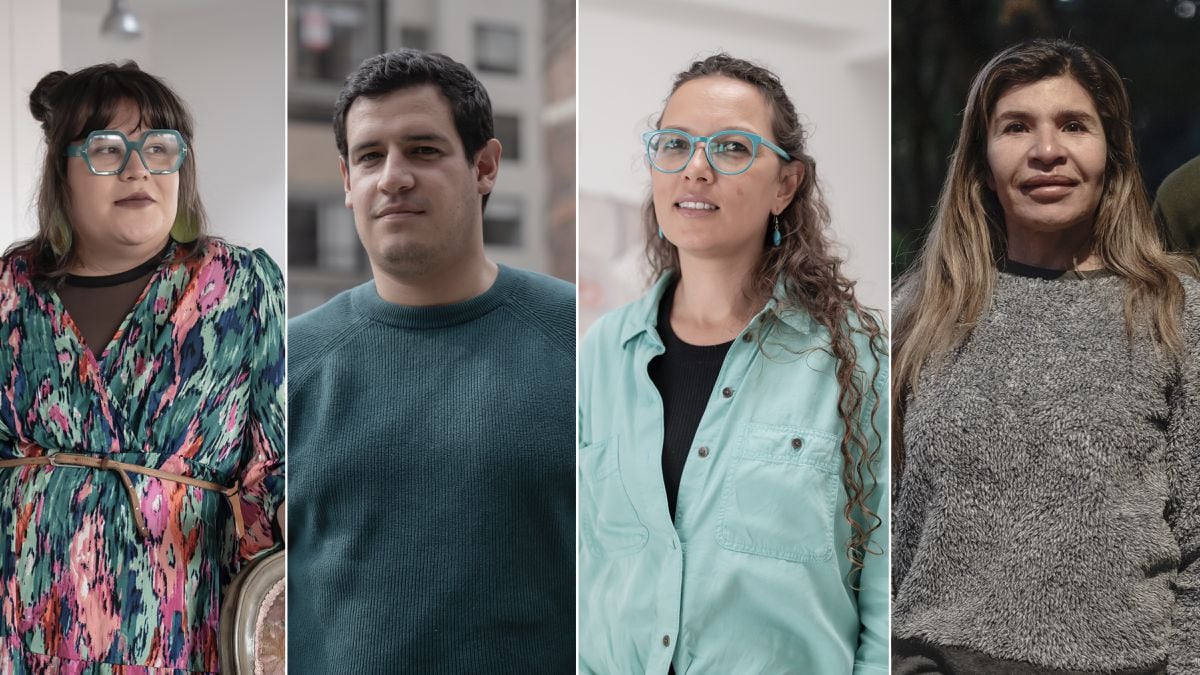In 15 years of neighborhood help in Moosburg, including seven years as a manager, Karolina Altschäffl has set up a lot - and also participated in a lot.
Moosburg
- old-age poverty, a serious illness or other strokes of fate: The reasons why people fall through the social safety net of institutions and are therefore dependent on voluntary support can be varied.
In Moosburg, neighborhood help has been taking on the role of unbureaucratic support for many years.
Until the organization was completely restructured recently, it was led with great commitment by Karolina Altschäffl.
In the interview, the 61-year-old looks back on moving moments, mixed feelings - and she explains the reason for saying goodbye to neighborhood help.
Freisinger Tagblatt:
Ms. Altschäffl, you were thanked in the Kastulusmünster with flowers and presents for the many years of managing the neighborhood help.
What does this honor mean to you?
Karolina Altschäffl:
Oh, I didn't really want a stir.
But Ms. Fleischmann (Annemarie, pastoral officer; editor's note) had insisted.
Then the whole thing was published on Facebook.
+
Thanks in the Kastulusmünster: At the beginning of March, Karolina Altschäffl (center) was recognized by Moosburg's parish priest Reinhold Föckersperger and pastoral advisor Annemarie Fleischmann for her longstanding leadership of neighborhood help.
© mj
Your modesty in all honor: After 15 years in this service, including seven years as a responsible person, a little attention is legitimate. How did you come to the Moosburg Neighborhood Aid in 2006?
At that time I was active in the parish council and was approached by Marta Thums ...
... your predecessor.
I agree.
She asked me: “Wouldn't you like to take part?” At first I was more involved in the background, but I was already being prepared for her successor.
Marta Thums actually wanted to continue the office until 80 - after her unexpected death everything went faster.
Did you even feel ready?
Yes.
But you only know what to expect in the end when you hold such an office.
There are a lot of spontaneous things, especially when it comes to neighborhood help.
You just have to respond to people's concerns.
It wasn't easy at first.
You have seen a lot. Which case do you particularly like to think back to?
An elderly couple was looking for someone to cook for them two or three times a week.
But at first I didn't know anyone who did that: Cooking is a rather unpopular task for others.
At some point I asked a friend at the Moosburger Tafel, a trained cook.
She promptly said: I'll do that!
So we went there together, I introduced everyone to each other - and it went so well that from then on she regularly cooked for them and also ate with them.
A real sense of achievement.
Which case did you particularly take with you?
There were several.
For example, I looked after an MS patient who lived on the third floor and could no longer walk properly.
I've always tried to use the AOK social service to initiate the paperwork for care.
When the woman came home from rehab, the Caritas nursing service was already ready - but no longer had a chance: the woman's level of care had been revoked again.
With things like that one says to oneself: It can't be!
With official support, it can be very complicated at times.
What did you find the greatest challenge?
Ultimately, the lack of helpers.
Wait a minute, "helpers"? Was it just women?
I've also had a few men on the team.
For example a gentleman whom I could fall back on for driving services.
In the meantime, it had taken on a life of its own: It was so popular and known through word of mouth that the ladies called him themselves (
laughs
).
But otherwise it was mainly women who were active.
Initially the team consisted of 15 people.
I would like to take this opportunity to thank all of my helpers who have supported me for so long.
Of course, they gradually got to an age where help was no longer possible.
That was difficult because the need was greater than what the neighborhood help could do.
Did that bother you?
It's frustrating when you want to but can't.
Then what did you do?
I contacted Johannes Becher.
I thought to myself: He's in politics and helped initiate mom and pop.
Maybe the neighborhood help can be included.
How did he react?
He was quite approachable and committed - but initially the really sparkling idea wasn't there.
That changed during the pandemic: from an action to support older people and other risk groups, under Johannes Becher's and Annemarie Fleischmann's direction, a reorganization of neighborhood help has succeeded.
Yes, thanks to Corona, things really got going.
Now there are a lot more people on board, and younger people are also getting involved.
The coordination takes place via the Internet, everything is distributed over many shoulders.
More broadly positioned: This is Moosburg's new neighborhood help
The new Moosburg network "Neighbors help neighbors" has around 80 members.
Here we explain what help is provided there - and how you can help yourself.
Are you also part of this new pool of helpers?
No, I'm completely out.
Because we now have grandchildren, I want to withdraw more from it all.
Even after twelve years, I didn’t allow myself to be elected to the parish council.
Just so that I am a little more free now.
But of course: if my help is needed, I'll be there.
I also continue to take part in the Moosburger Tafel.
And finally, I also work a little on an organic farm on the side.
What are you doing there?
All sorts of things to do with potatoes: digging, sorting, peeling for a large kitchen - being in nature a little and doing physical work, that's just fun.
On a voluntary basis, you organized a lot for the women of the Moosburg parish, planned Caritas collections and a lot more. Where does your helper syndrome come from?
Certainly from my parents, they were always there for others.
As sextons, they were the contact person for everything.
I grew up in Seebach near Deggendorf, and that's how it was in a village.
Last question: How would you convince others to volunteer?
It is just a good feeling when you have really achieved something and have been able to help or initiate help.
That gives you a lot of positive things back.
The network is becoming more and more dense: Corona rapid tests are offered at these locations in the Freising district
Nandlstädter (63) barely survived Covid, he is still suffering from the consequences









